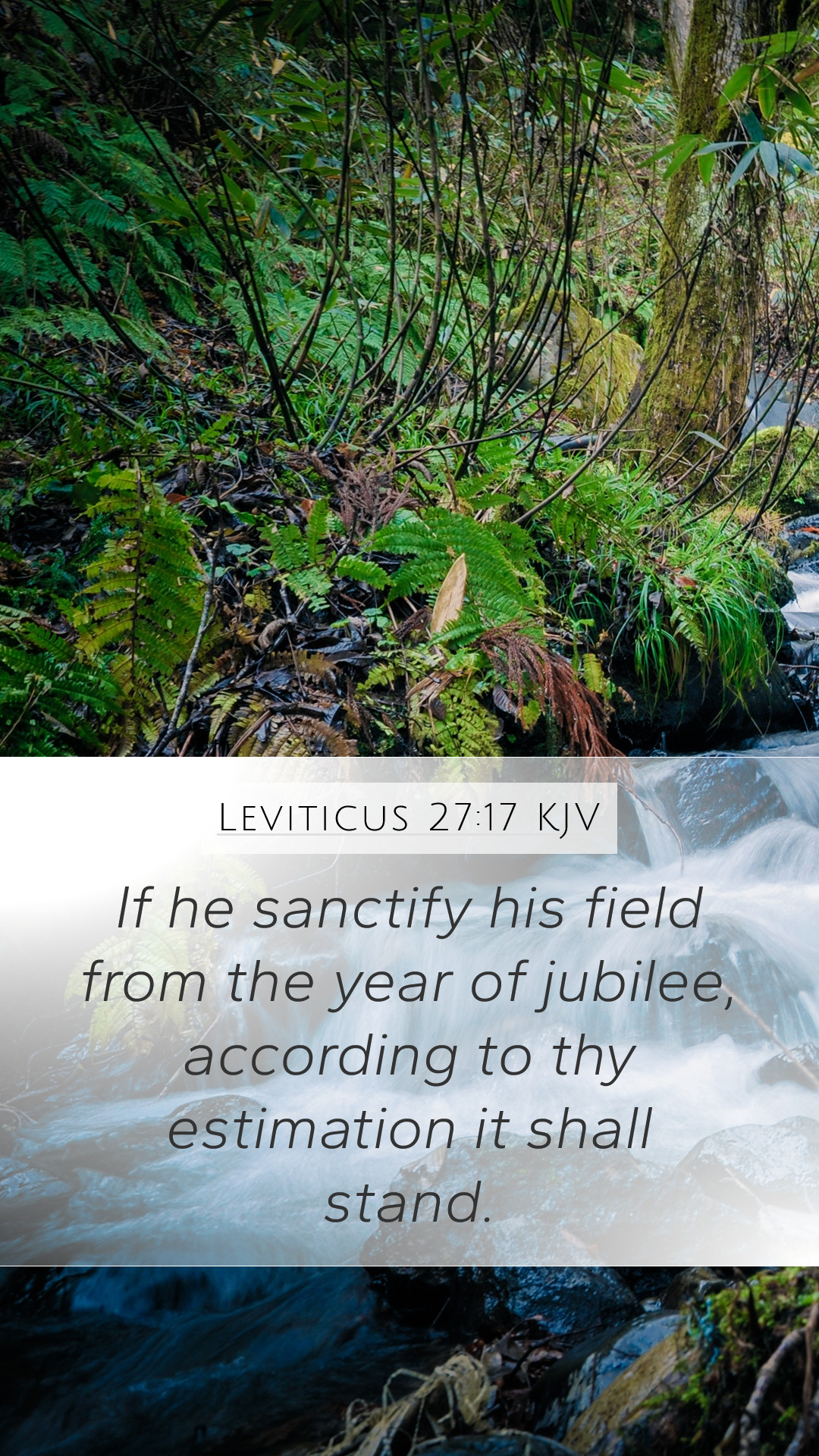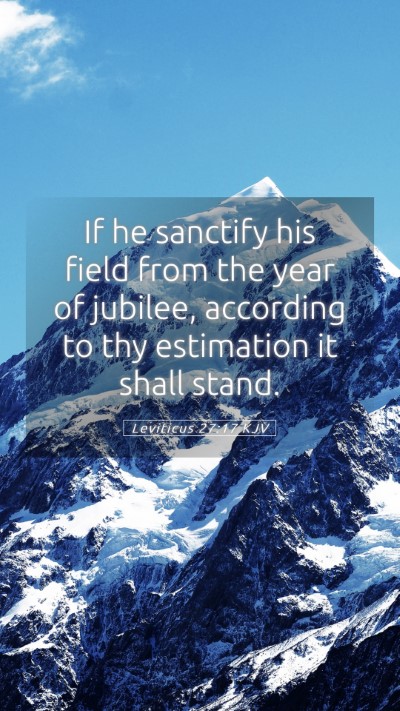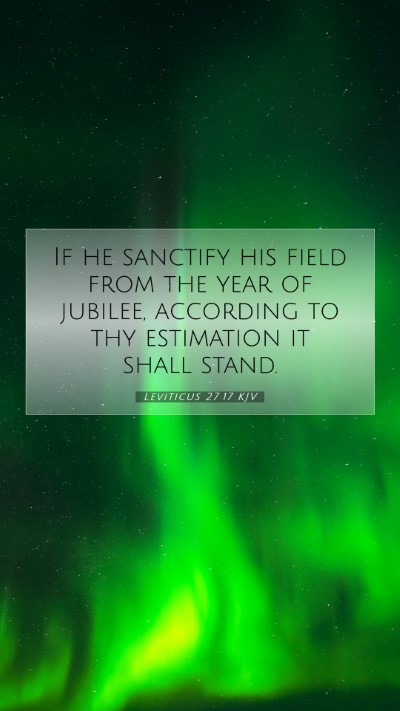Understanding Leviticus 27:17: A Comprehensive Bible Verse Commentary
Leviticus 27:17 states, "And if he sanctify his field from the year of jubilee, according to thy estimation it shall stand." This verse provides insight into the laws governing the sanctification and valuation of land within the Israelite community, reflecting broader themes of dedication, economic responsibility, and the observance of divine law.
Bible Verse Meanings
This verse represents an important aspect of the Mosaic Law concerning the jubilee year, emphasizing the Israelites' unique relationship with their land and God.
Bible Verse Interpretations
- Matthew Henry's Commentary: Henry interprets this verse as highlighting God’s ownership of the land and the people's obligation to manage it faithfully. The jubilee year was a divine provision for restoring property and ensuring equity within the community.
- Albert Barnes' Notes: Barnes emphasizes the significance of the jubilee as a time of renewal and restitution, where the original boundaries of land ownership were restored, reflecting God's justice and mercy.
- Adam Clarke's Commentary: Clarke elaborates on the need for the sanctification of the land, referring to the importance of dedicating resources to the Lord and the recognition of their temporary nature amidst God's eternal sovereignty.
Bible Verse Understanding
The understanding of Leviticus 27:17 requires an acknowledgment of the cultural and historical context surrounding the Israelites' practices related to land ownership and its consecration. The verse reflects a significant aspect of ancient Israelite culture, where the year of jubilee allowed for regular restoration and prevention of perpetual poverty.
Bible Verse Explanations
This verse can be explained through several lenses:
- Historical Context: Understanding the importance of the land to the Israelites is key; it was seen as a divine gift and their inheritance from God.
- Theological Significance: Dedication of the land to God signifies a recognition of His sovereignty and the importance of keeping the covenant laws.
- Practical Application: Modern readers can draw parallels to how they manage their resources and recognize God's hand in their provisions.
Scripture Analysis
Analyzing Leviticus 27:17 reveals deeper theological implications, such as stewardship, divine ownership, and community ethics in the biblical context. It calls believers to consider how they perceive their possessions and responsibilities to God.
Biblical Exegesis
In exegesis, especial attention should be given to the terms "sanctify" and "year of jubilee," which signify dedicated rituals of setting apart, emphasizing a spiritual and communal dimension to personal property ownership.
Bible Study Insights
Bible study groups can explore Leviticus 27:17 in relation to contemporary issues such as land use, charity, and community welfare, bringing ancient practices into relevance in today's context.
Cross References
- Leviticus 25:10 - The proclamation of liberty in the Jubilee year.
- Deuteronomy 15:1-2 - The commandments regarding the cancellation of debts in the seventh year.
- Psalm 24:1 - The earth is the Lord's, and all its fullness.
Conclusion
In conclusion, Leviticus 27:17 not only provides insights into the laws of ancient Israel regarding land sanctification but also serves as a reminder for modern believers to engage in responsible stewardship of their resources while recognizing God's ultimate ownership over all things.
For further understanding of this verse and others, engaging with various Bible study resources and Bible study tools can illuminate the path of exploration into understanding Scripture and its applications to daily life.


